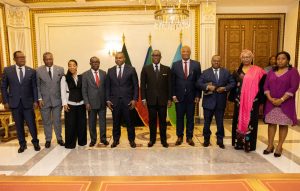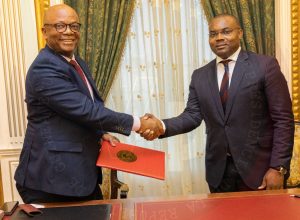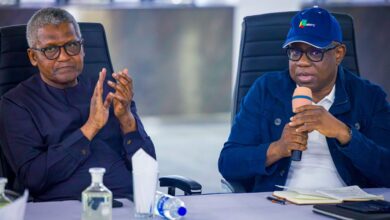

The Republic of Equatorial Guinea has joined the Abuja Memorandum of Understanding on Port State Control (Abuja MoU) as the 20th full member of the organisation
Acceptance of the new member country was disclosed in a press release issued by Captain Sunday Umoren, Secretary General of the Abuja MoU
According to Umoren, who welcomed the new full member country, the Republic of Equatorial Guinea deposited its Letter of Acceptance of the Memorandum to the Secretariat on November 23, 2023.

Umoren expressed optimism in the possible expansion of the Inter Governmental Organisation (IGO) stating that Mauritania and the Republic of Namibia being the only two countries left are in the process of facilitating their full membership of the organisation.
He added that the Secretariat is established to facilitate and provide support to member States, in the development of a system of harmonized Port State Control Inspection Procedure for the region with the aim of eliminating sub-standard ships, protecting the marine environment and improving the living and working conditions of seafarers.
According to Umoren “Port State Control is the inspection carried out on foreign ships which call at respective ports, to verify their compliance with international instruments on safety, pollution prevention and seafarers living and working conditions. It is a means of enforcing compliance in cases where the owner and flag State have failed in their responsibilities to implement or ensure compliance, making it the second line of defence against sub-standard ships.
“Thus, the aim of the MoU regime is to complement the work of flag States and coastal States in eradicating the operation of sub-standard ships as the maritime domain is plied by merchant ships of diverse flags and these include bulk carriers, RoRo, chemical/oil tankers, gas carriers, passenger ferries, Reefers, non-convention size ships, fishing trawlers etc. and these ships require close monitoring, especially when they berth at your port”
With the attainment of full membership, Equatorial Guinea has taken the first step towards
ensuring that its waters are safe and secured. Other advantages to signing into the MoU include:
• Improved reputation in the comity of Maritime Nations. Being an active member of the MoU regime is synonymous with the declaration for the protection of the maritime environment;
• Protection of the maritime clusters and diverse economic sectors of the Blue Economy
• Protection of your import and export noting that only seaworthy vessels can visit your maritime domain.
• Expanded access to accessible training at national and regional levels for your maritime experts.
• Access to the Mentor/Mentee scheme which is facilitated by the Abuja MoU
Captain Umoren added that Equatorial Guinea is now expected to ratify and domesticate all IMO and International Labour Organisation (ILO) conventions that have been approved by
the Abuja MoU Port State Control Committee as Relevant Instruments; Work with the Secretariat on capacity building and capacity development of Equatorial Guinea’s Port State control Officers and other relevant personnels (policy makers inclusive); and Actively conduct Port State Control Inspections (PSCI) and Concentrated Inspection Campaigns (CIC). We are aware that you have tried to conduct PSCIs in time past,
Presenting an overview of the Abuja MoU, Umoren said it is one of the nine (9) regional + 1 MoUs established pursuant to International Maritime Organization (IMO) Resolution A.682 (17) of 1991. The formally came into existence on October 22, 1999 in Abuja, Nigeria, as an Inter-Governmental Organization (IGO) comprising the supervising Ministries and Maritime Administrations of countries abutting the Atlantic Ocean coast of Africa from Mauritania to South Africa. The Organization operates under a Cooperative Agreement with the IMO.
The following nineteen (19) countries have attained full membership with the MoU: Senegal,Sierra Leone, Congo, Guinea, Nigeria, Ghana, Benin, The Gambia, Togo, Gabon, Côte d’Ivoire, Angola, Sao Tome and Principe, South Africa, Guinea Bissau, Cabo Verde, Liberia,Cameroun and Congo DRC.











